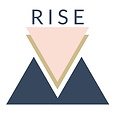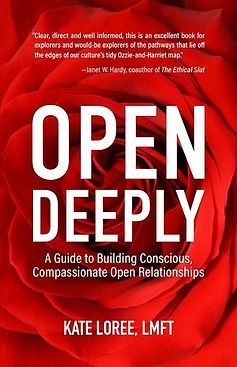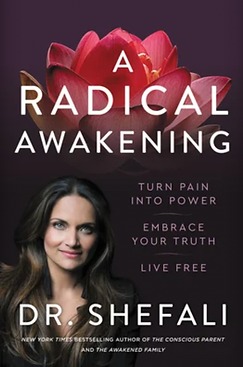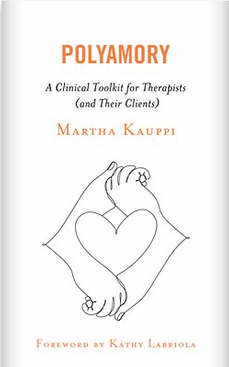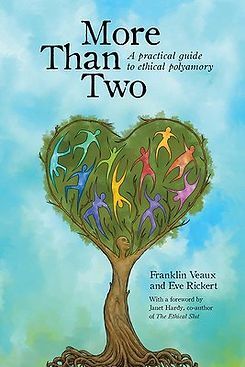Ethical Non-Monogamy (ENM) / Polyamory
What is ethical non-monogamy? How do you open a relationship?
Is polyamory natural?
Whether you’re exploring the idea of non-monogamy for the first time or have practiced polyamory for years, you probably have lots of questions about how it works (or how it can work better).
The journey into ethical non-monogamy (ENM) can be rewarding, enlightening, and full of self-discovery…but it can also be difficult, emotionally taxing, and fraught with unexpected challenges. There’s a lot to know—and a lot to unlearn. Which is true even for those with plenty of experience.
Check out our articles on topics related to ENM/polyamory...or if you're ready to talk about non-monogamous relationship coaching start here:
Most of us are brought up believing monogamy is the natural way romantic relationships work. Whether functional or otherwise, it was the model we grew up with. And certainly the culture we’re raised in.
But even conservative estimates place the number of people practicing some form of ethical non-monogamy in America at well over 10 million. Chances are you know at least one person engaging in ENM, whether you’re aware of it or not.
Which means that even if you’re not interested in ENM for your own life, educating yourself about the key terms and concepts can help you form more open, empathetic, and trusted connections with the people in your life who are.
So where is the best place to begin learning about ethical non-monogamy? What should you know before opening your relationship?
As a poly-informed relationship coach, I can tell you from personal and professional experience that the number one key to making polyamory work is communication. Followed closely by curiosity and empathy.
Every single one of us is embedded with myriad familial and cultural expectations, insecurities, and habits. Each of those play into how we respond to different situations and emotions that come up in relationships—with added complexity when ENM is also a factor.
Part of making polyamory work includes unlearning deeply ingrained habits like sexual possessiveness, viewing jealousy as a measure of love, and expecting one partner to fulfill all of our needs. It requires vulnerability, integrity, and the ability to hold steady and have clear discussions about difficult subjects.
No one honest will tell you that ethical non-monogamy is easy. But with plenty of education, myth-busting, and poly-informed counseling, I promise you it’s possible to find happiness, balance, and love in multiple relationships that fulfill different needs and enhance each other overall.
Keep reading to learn more about terms, topics, and tips about open relationships, polyamory, and other ENM concepts that come up in alternative relationship coaching.
Important Terms & Definitions
What is non-monogamy? How do you discuss opening a relationship with your partner? What other types of alternative relationship structures are there? What's the difference between ethical non-monogamy (ENM) and polyamory?
Learning some of the basics during your coaching sessions will help you broaden your familiarity with concepts and language related to polyamory and ENM.
Jealousy & Compersion
What is jealousy? It's a complex emotion associated with something of ours being taken by another. It can trigger other emotions like anger, anxiety, and abandonment—and often cascades into a fight/flight response.
Jealousy is handled differently in monogamy vs poly/ENM relationships. Learn more about reframing jealousy through empathy, curiosity, communication, and focusing instead on compersion—the positive emotion you feel when your partner has an enjoyable experience with another.
Work alongside your poly-informed coach at RISE to decrease jealousy and improve connection through compersion.
Initiator/Inquirer Communication
Developed by the Couples Institute and popularized by Martha Kauppi, the Initiator/Inquirer model of relationship communication is a powerful coaching tool—that you can also practice on your own.
Each partner assumes a role. The Initiator has something they want their partner to understand deeper. The Inquirer is the one listening with empathy and probing for more.
It’s a great way to practice curiosity and extended listening, and when it’s successful can open doors for partners to discover exciting new things about each other.
How Polyamory Stirs Up Trauma
I can tell you from personal experience—the journey into polyamory can bring up trauma demons you thought vanquished long ago.
Whether you or your partner(s) have trauma in your backgrounds, it's important to understand how even minor PTSD can add fuel to the complex emotions associated with non-monogamy—and potentially lead to mental health crises.
Learn more about trauma and polyamory, and how you can support yourself and your partner(s) when triggers occur and conflict ensues.
How to Open a Relationship
Though best done with help from a poly-informed coach, it is entirely possible to find happiness in transitioning from monogamy to an open relationship. It doesn't have to be traumatic. In fact I've had more than one client tell me how opening to ethical non-monogamy led to deeper connection and better understanding of their partner.
There's a lot to consider when it comes to opening a monogamous relationship. Communication is a big factor. Careful self-examination of emotions, vulnerability, and what your wants really mean is another.
Let's talk about attachment styles, jealousy & compersion, empathy, patience, and all the good stuff.
Coaching for Multiple Partners
Though I'm licensed as an LCSW in Virginia, the traditional therapy model isn't equipped to handle unconventional relationship structures like polyamorous triads or long-distance primary partners.
That's why I offer coaching in addition to my therapy services so my hands aren't bound (so to speak) by the rules of traditional psychotherapy.
Learn how poly friendly relationship coaching can set you up for continued success—however that looks to you.
The RISE Bookshelf
Book images link to Bookshop.org, our non-Amazon bookseller affiliate. Support independent businesses while you expand your mind!
1.
Discovery
Call

2.
Begin Your
Sessions

3.
Do Your
Homework

4.
Celebrate Your Progress

The rest of your life is ahead of you...
We'll help you make the most of it!
When you’re ready to get to work, we’re ready to hear from you. At RISE Relationship Therapy & Training Services we offer trauma therapy & coaching services that will help you overcome struggles and find a greater sense of satisfaction in your life.
Ready to create a new you? Book a complimentary consultation!
